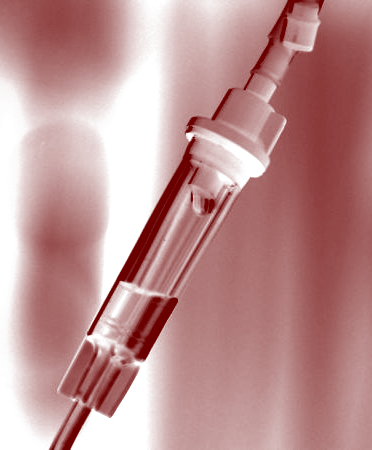IV supply propped up
 The Federal Government says it has taken action to address a critical shortage of intravenous (IV) fluid bags, securing an additional 22 million bags.
The Federal Government says it has taken action to address a critical shortage of intravenous (IV) fluid bags, securing an additional 22 million bags.
The boosted supply is expected to ensure that the country's health system can meet the anticipated demand over the next six months.
It follows reports that patients were experiencing extended hospital stays due to rationing caused by the shortage.
Federal Health Minister Mark Butler has announced the move as part of a broader strategy to stabilise the situation, which has been exacerbated by higher-than-expected demand and manufacturing constraints worldwide.
“We needed to do something to ensure there was an additional injection of supply into the market, and we've done that,” he said.
The global shortage of IV fluids, particularly saline, has led to a response group being formed, comprising representatives from all states and territories, as well as private hospitals and primary care providers.
This group has been meeting weekly to manage the shortfall, and Butler noted that the situation was stabilising across the country, though conditions vary between jurisdictions and sectors.
Despite these efforts, doctors have been instructed to continue conserving IV fluids.
In New South Wales, clinical guidelines have been updated to prioritise the use of these fluids for critical cases, such as resuscitation, intensive care, and surgery.
Measures have also been suggested to minimise fluid replacement by reducing patient fasting times before surgery.
The American multinational company Baxter, which supplies approximately 75 per cent of Australia’s IV fluids, has increased production at its Sydney facility to record levels.
Minister Butler recently visited the plant and reported that the production lines were operating at over 105 per cent capacity.
He said Baxter is doing everything possible to meet the needs of Australia’s health system, but acknowledged the challenges posed by the global situation.
Doctors have expressed cautious optimism following the government's announcement.
The Australian and New Zealand College of Anaesthetists (ANZCA) says that the additional supply is a positive development, but said it does not have details on when these supplies will reach frontline clinicians.
The Australian Medical Association (AMA) said all levels of government have “stepped up” to address the crisis.








 Print
Print